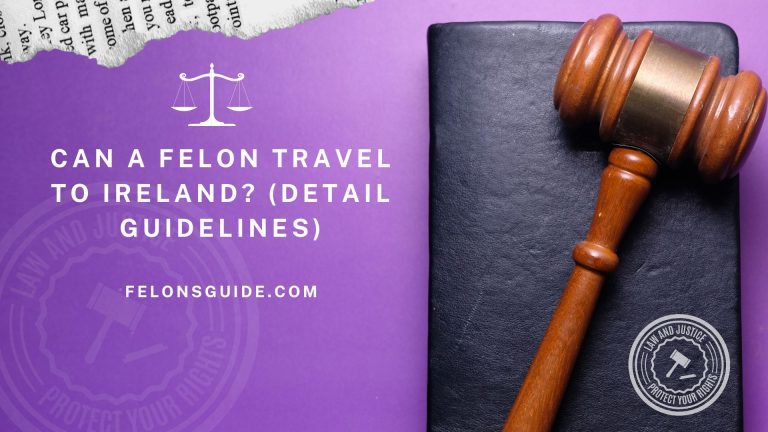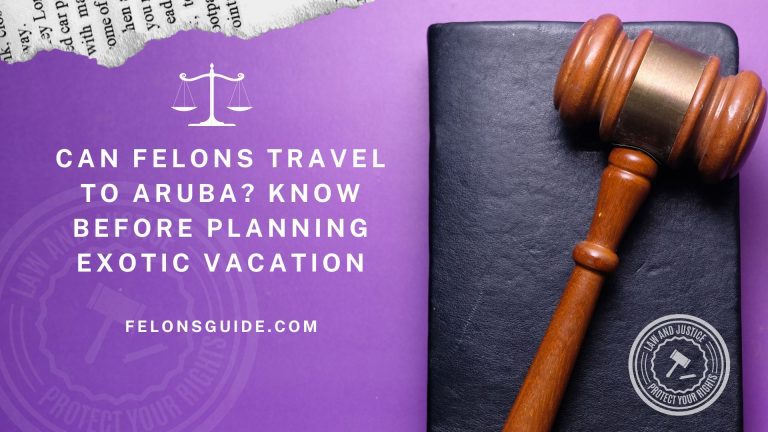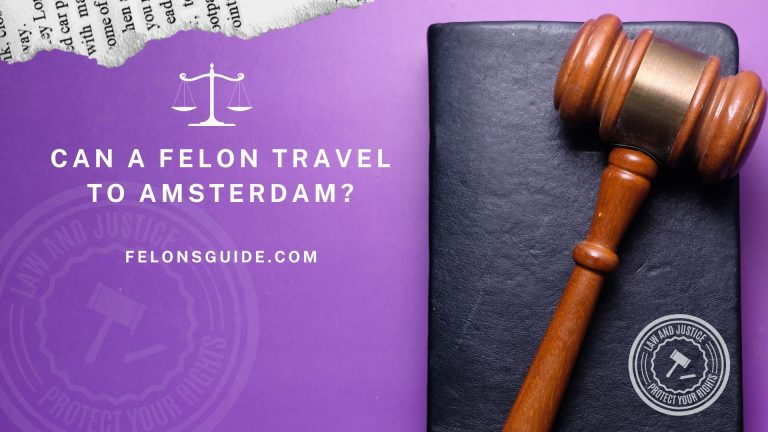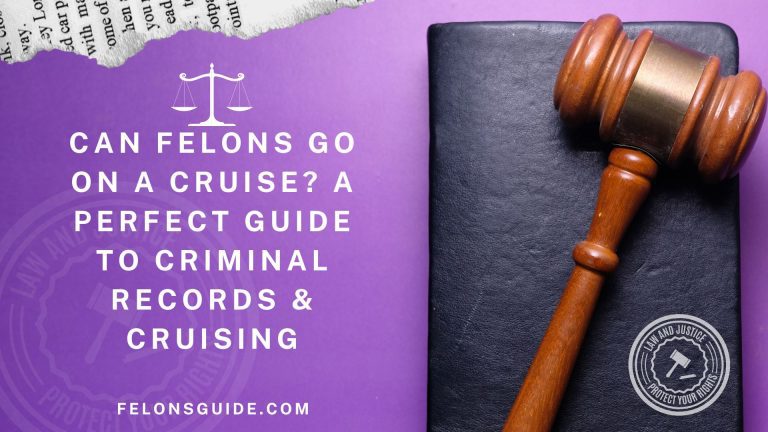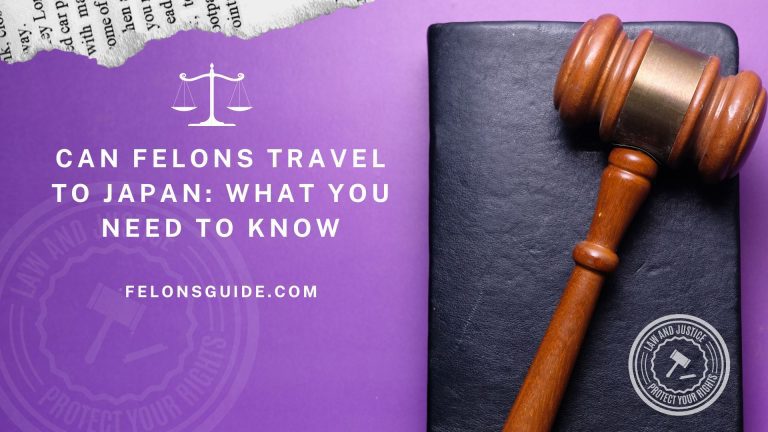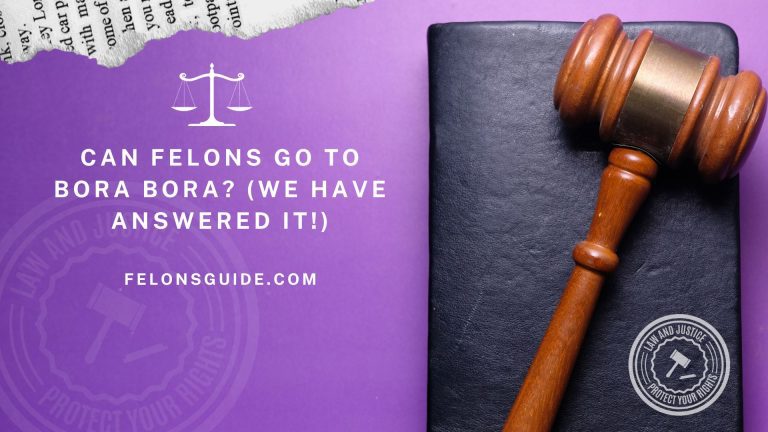Can Felons Leave the Country? Know Your Rights & Restrictions
The repercussions of a criminal conviction are grave and far-reaching, potentially spanning a lifetime. Among the numerous limitations that convicted felons confront is the capability to traverse overseas. If you’re a felon wondering “Can felons leave the country?” this article is for you.
Within the confines of this piece, we shall deliberate upon the legal constraints and necessities afflicting felons who yearn to embark on an international sojourn. Additionally, we shall furnish some pointers that would ensure a seamless travel experience. Regardless of whether your itinerary comprises a holiday, a professional engagement, or a familial rendezvous, it behooves you to familiarize yourself with the constraints and prerogatives imposed upon a felonious individual.
Can Felons Leave the Country? Legal Restrictions and Requirements
If you’re a convicted felon, your ability to leave the country will depend on several factors, including the nature of your crime, the terms of your probation or parole, and the countries you plan to visit. Here are some important things to keep in mind:
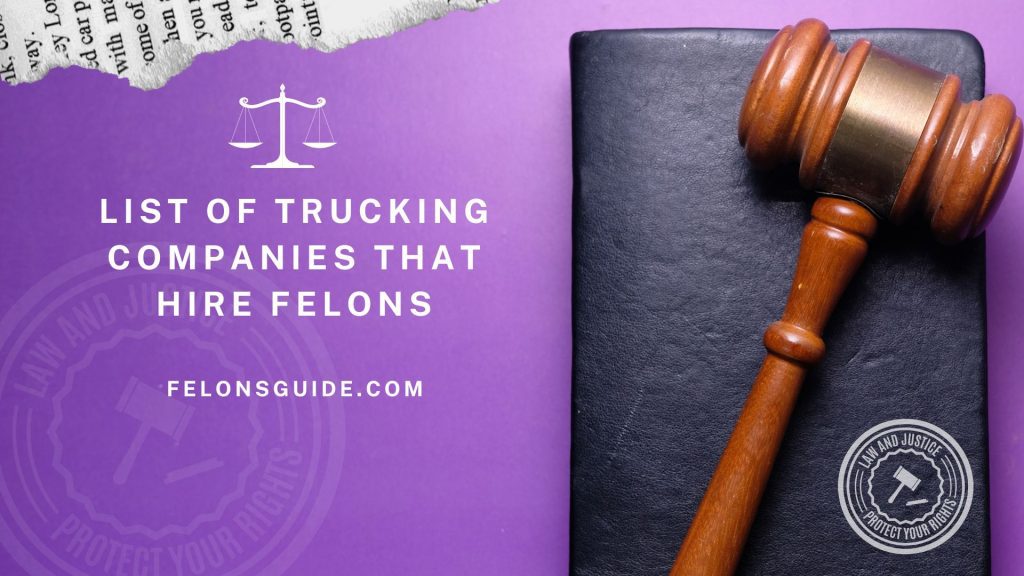
Passport Application:
To leave the country, you’ll need a valid passport. The process for obtaining a passport is the same for everyone, including felons. However, if you have outstanding warrants, unpaid child support, or unpaid federal loans, your passport application may be denied.
Probation and Parole:
If you’re on probation or parole, you’ll need permission from your probation or parole officer to leave the country. Depending on the terms of your probation or parole, you may need to get approval from a judge or a court before you can travel.
Travel Restrictions:
Some countries have restrictions on who can enter their borders, including felons. For example, Canada has strict entry requirements for people with criminal records. If you have a felony conviction, you may need a special entry permit, known as a Temporary Resident Permit (TRP), to enter Canada.
Similarly, if you plan to visit other countries, you should check their entry requirements before booking your trip. Some countries may deny entry to people with criminal records, while others may require additional documentation, such as a police certificate or a letter of good conduct.
If an individual who is not a citizen of the United States is found guilty of a criminal offense, they may be subjected to expulsion from the country. Furthermore, in certain circumstances, the person in question may be prohibited from re-entering the nation after being deported.
Also Read: Can a Convicted felon be a Confidential Informant?
Valuable Travel Tips:
For those who have been convicted of a crime and wish to travel overseas, it is recommended that the following suggestions be considered in order to minimize any difficulties that may arise:
Plan in Advance:
Prior to making travel arrangements, it is necessary to investigate the entry requirements of the countries you intend to visit. Verify that you have obtained all of the necessary documentation, including a passport, visa, or entry permit.
Be Honest:
When applying for a passport or visa, be honest about your criminal history. Providing false information can lead to the denial of your application and further legal consequences.
Also Read: Can Felons Vote in Georgia? The Answer May Surprise You
Seek Legal Advice:
If you’re unsure about your rights and restrictions as a convicted felon, seek legal advice from a qualified attorney. They can help you understand your legal obligations and provide guidance on how to travel legally and safely.
FAQs:
Can felons leave the country?
Yes, felons can leave the country, but they may face legal restrictions and requirements.
Do felons need a special passport?
No, felons do not need a special passport. The passport application process is the same for everyone.
Can felons enter Canada?
Felons may enter Canada, but they may need a Temporary Resident Permit (TRP) to do so. Canada has strict entry requirements for people with criminal records, and felons may be subject to additional screening and questioning at the border.
Can felons travel to other countries?
Felons can travel to other countries, but they should check the entry requirements for each country they plan to visit. Some countries may have restrictions on who can enter their borders, and felons may need additional documentation to travel legally.
Will my criminal history show up on my passport?
No, your criminal history will not show up on your passport. However, some countries may require you to disclose your criminal history when applying for a visa or entry permit.
Can I travel while on probation or parole?
It is plausible to embark on a journey whilst under probation or parole, however, it is essential to obtain authorization from your respective probation or parole officer. Depending on the specifications of your parole or probation, an allowance from a court or judge may also be necessary before engaging in travel.
Conclusion:
If you’re a convicted felon wondering “Can felons leave the country?”, the answer is yes, but with some restrictions and requirements. To travel abroad legally and safely, it’s essential to know your rights and limitations as a felon, including the entry requirements for the countries you plan to visit.
Before booking your trip, research the entry requirements, be honest about your criminal history, and seek legal advice if necessary. With proper planning and preparation, felons can travel abroad and enjoy all the opportunities that come with international travel.
